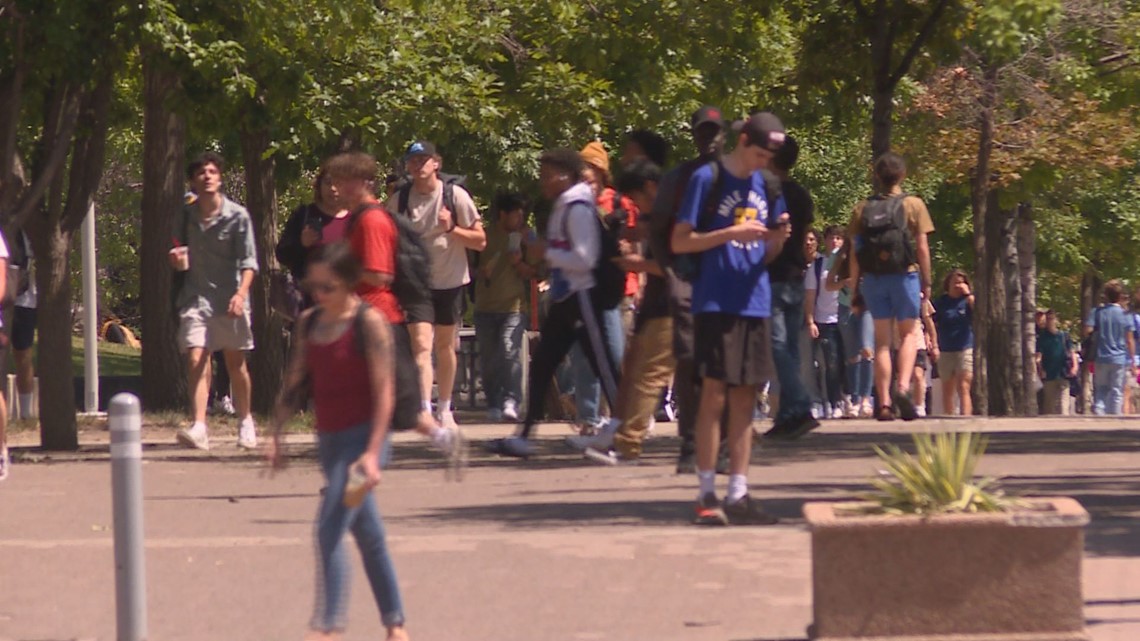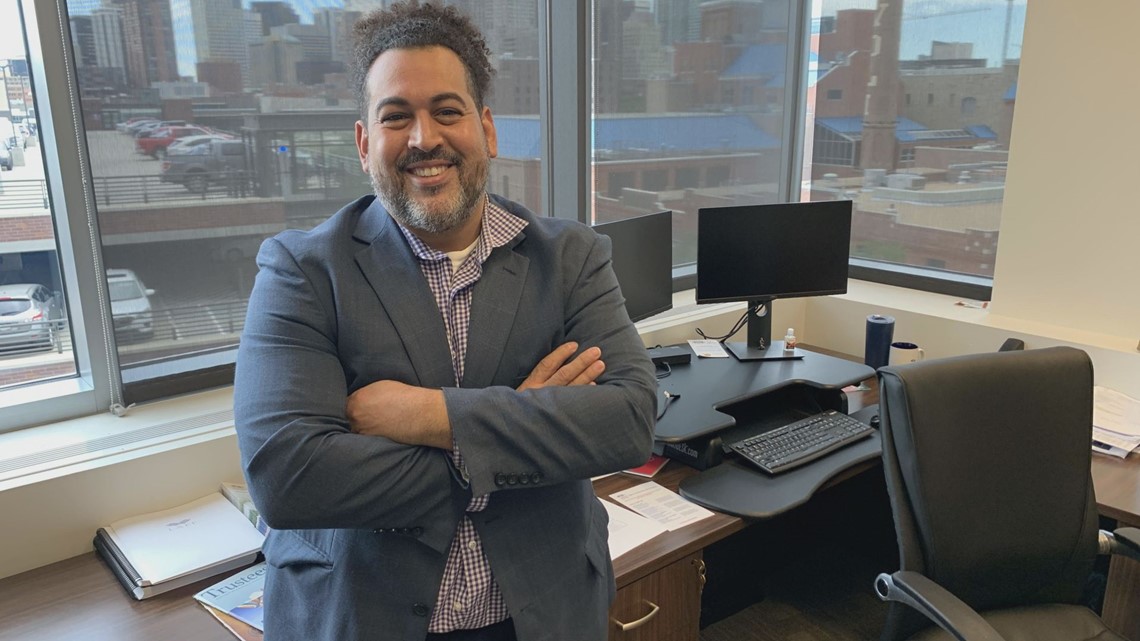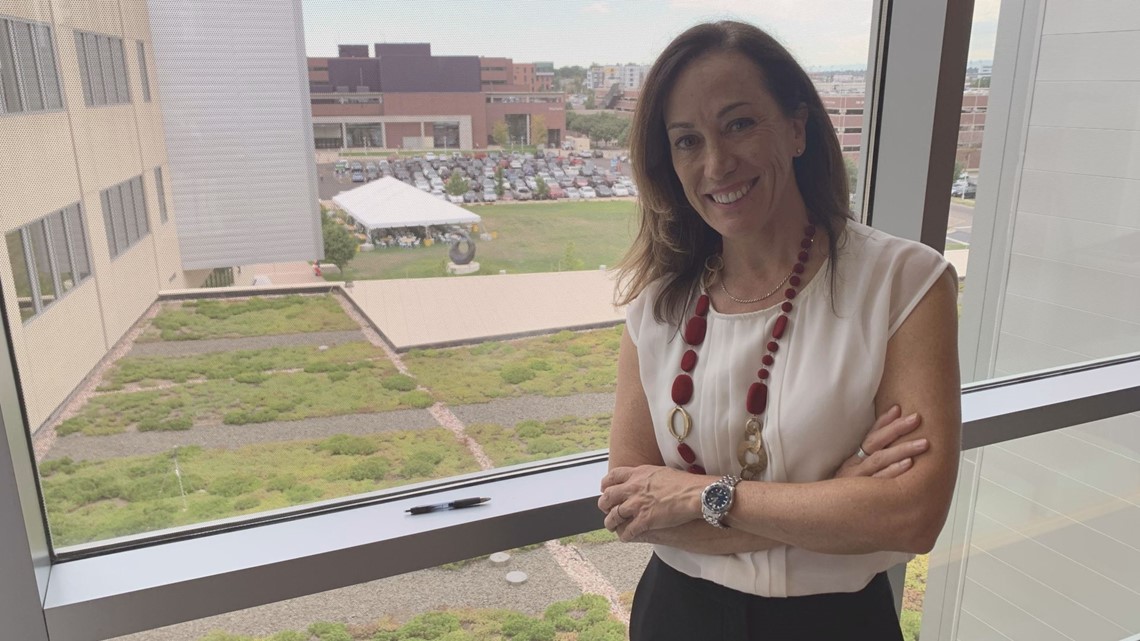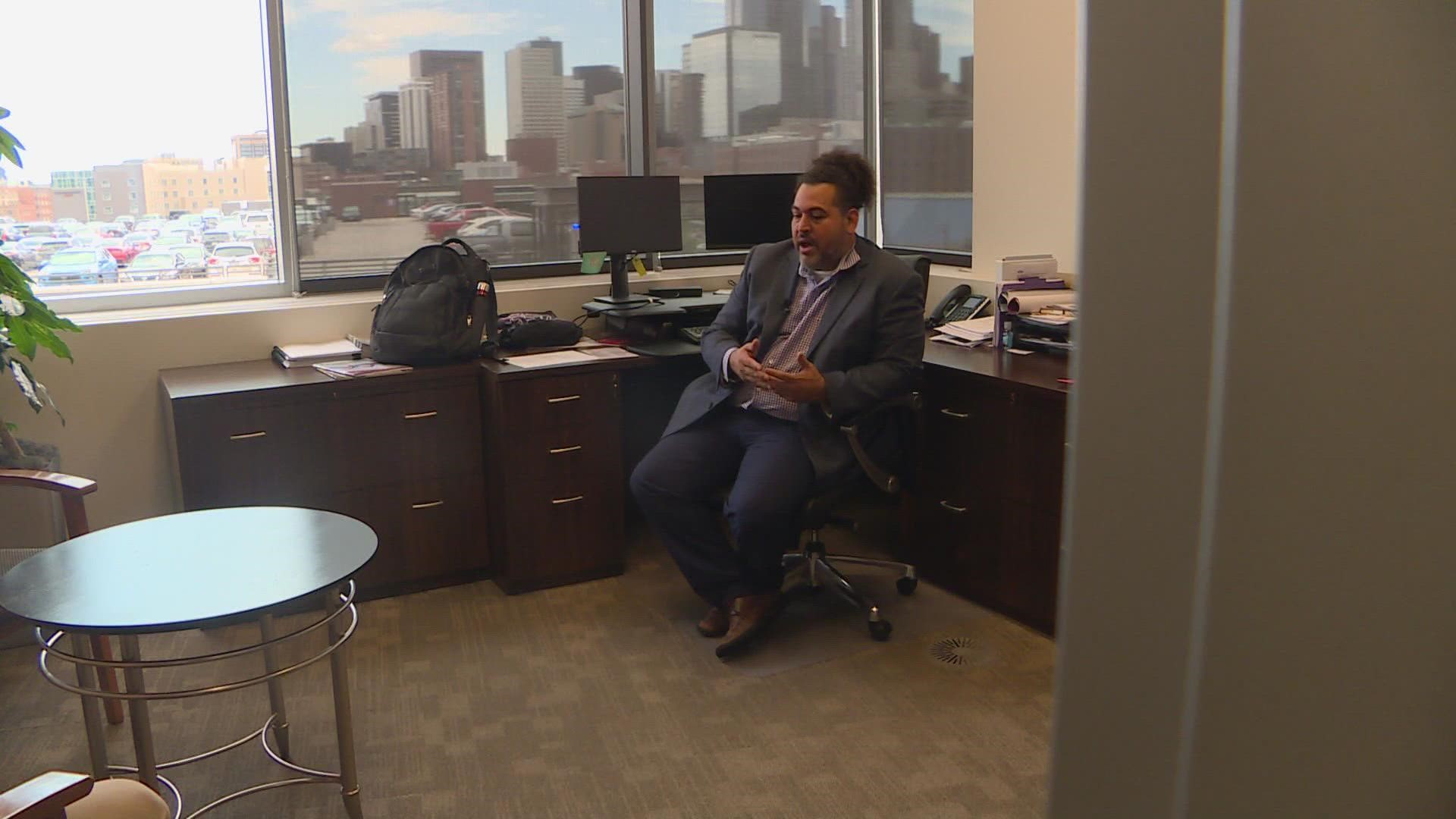DENVER — As students head back to school, excitement fills college campuses, but there's also a sense of relief for some, as President Joe Biden on Wednesday announced plans to provide $10,000 in student debt cancellation for millions of Americans.
While the loan forgiveness will inevitably impact many, students who identify as Latino or BIPOC will also see school debt forgiveness.
Nationally, among students who started school in 2012, 51% of Latino students borrowed to pay for their undergraduate or graduate school, according to an analysis from Excelencia in Education.
Meanwhile, a survey out this week from the large Latino advocacy nonprofit, Unidos US, found that out of 1,200 Latinos surveyed, 38% with student loan debt owe an average of $17,000.
More than half of the respondents said they're the first in their family to take on student loans.


"I was excited," said Michael Benitez, Ph.D., the vice president of diversity and inclusion at Metro State University Denver (MSU). "But we also understand that in order to come up and in order to be mobile, in order to be able to make some moves, attend college, get the education that we need to be, you know, successful in many cases for many careers, that's the route that we have to take."
Benitez is also a professor of multicultural education, and said loans add to the plate of Latino students, who already find themselves in a situation where they have to prioritize things they normally wouldn't.
"And so things like taking care of the families, which is real big in the Latinx community, a lot of them have their, you know, aunties, tias and tios, abuelas and abuelos, living with them, have to have to think about their lives holistically. They have to think about their lives more than just themselves," Benitez said. "So it (student loan forgiveness) really takes a lot of weight off their cultural shoulders by way of what they have on their plates and their abilities to not have to take on so much. And and which increases the likelihood to be successful."
In the case of MSU Denver, 8,152 students who are Hispanic or BIPOC and were registered within the 2021-2022 academic year – 3,395 (or 41.65%) of those students have some level of federal loan debt.


Additionally, 2,256 of the 3,395 students (66.45%) had PELL eligibility at some point within their college experience.
"It's going to have impact for all kinds of students," said Janine Davidson, Ph.D., the president of MSU Denver.
She believes the loan forgiveness will be effective in the short-term, but thinks it points to a greater issue around affordability for higher education.
The university announced this month that it will lock in tuition rates for new and current undergraduate students, which means their tuition rate won't increase for up to four years.



